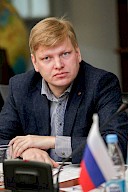Prospects for the development of the CSTO in new conditions

The Collective Security Treaty Organization (CSTO) is a military and political union of Russia, Armenia, Belarus, Kazakhstan, Kyrgyzstan and Tajikistan and the only structure in the post-Soviet area that provides member states with guarantees of mutual military assistance and political support in case of external aggression.
At the same time, the task of developing the Organization as “a key instrument for maintaining stability and ensuring security in the CIS area”, set out in the 2008 Foreign Policy Concept of the Russian Federation, was not implemented, but ceased to be declared as a foreign policy priority in the Concepts adopted in 2013, 2016 and 2023. The rejection at the end of 2021 of the draft new agreements proposed by Russia in pan-European security by the West, which provoked the start of the Special Military Operation in Ukraine, led to virtually direct confrontation between Russia and Western countries. Due to the growing geopolitical tensions, the conflict between Armenia and Azerbaijan over Nagorno-Karabakh also developed.
All these events complicated the conditions for the CSTO development and jeopardized the effectiveness of decision-making in the Organization. The 2023 Foreign Policy Concept of the Russian Federation formulates “strengthening the potential and increasing the international role of the CSTO” as one of the priorities in general, emphasizing the “anti-crisis and peacekeeping” potential of the Organization, its role in ensuring biological security. Currently Moscow’s task is to preserve and develop the CSTO, which remains a tool for Russia to maintain leadership in the emerging Eurasian subsystem of international relations. This report timely addresses the key aspects of the CSTO’s activities under the world order crisis of 2022-2023 in order to analyze the prospects for the development of the Organization. The first section examines the formation and evolution of the Organization, which shaped its historical and institutional memory. Adaptation of the Organization to the geopolitical crisis of 2022-2023 became the subject of analysis in the second section. An attempt to outline possible scenarios for further transformation of the CSTO is made in the third section. In conclusion, the authors’ assessment of the scenarios is provided...
Read the paper







